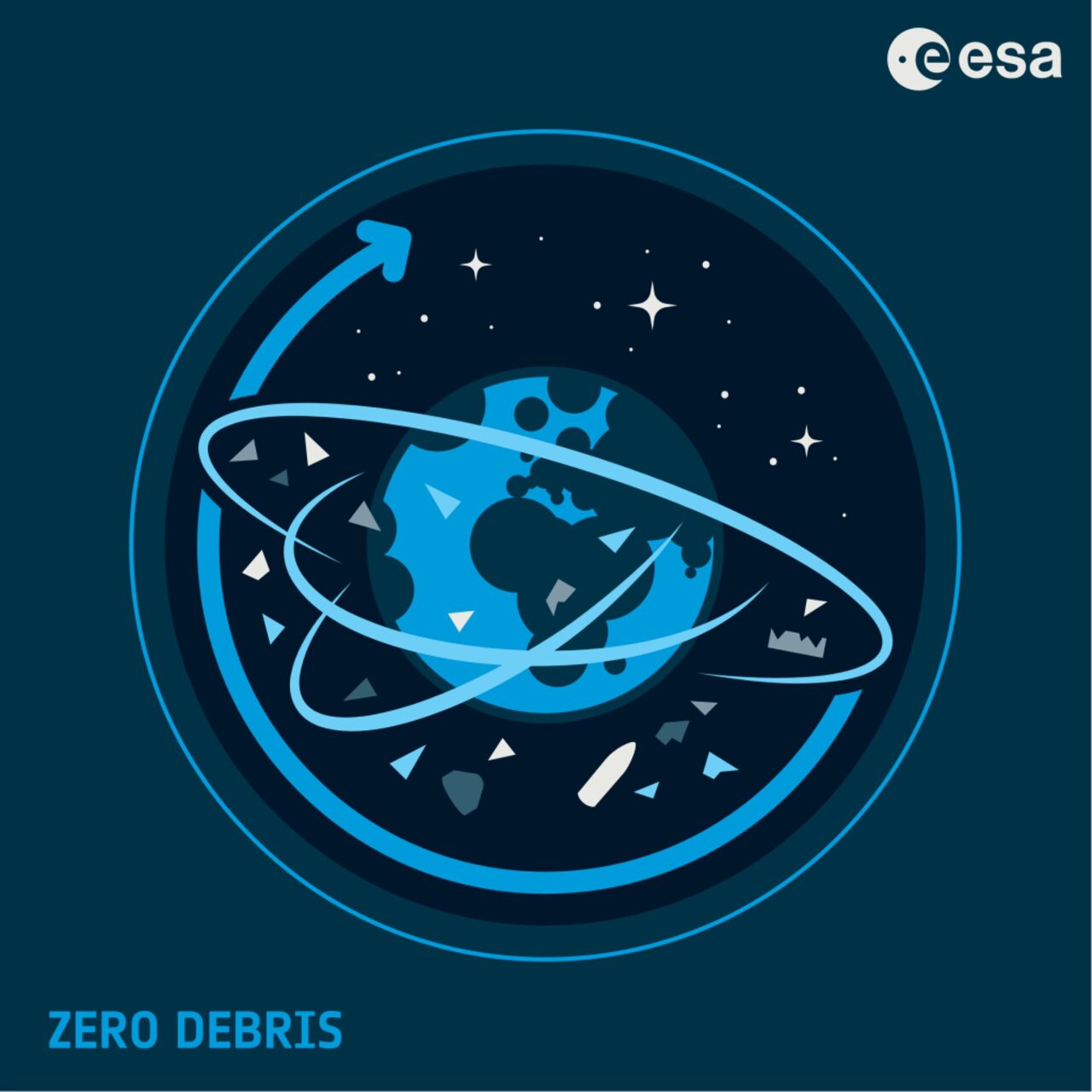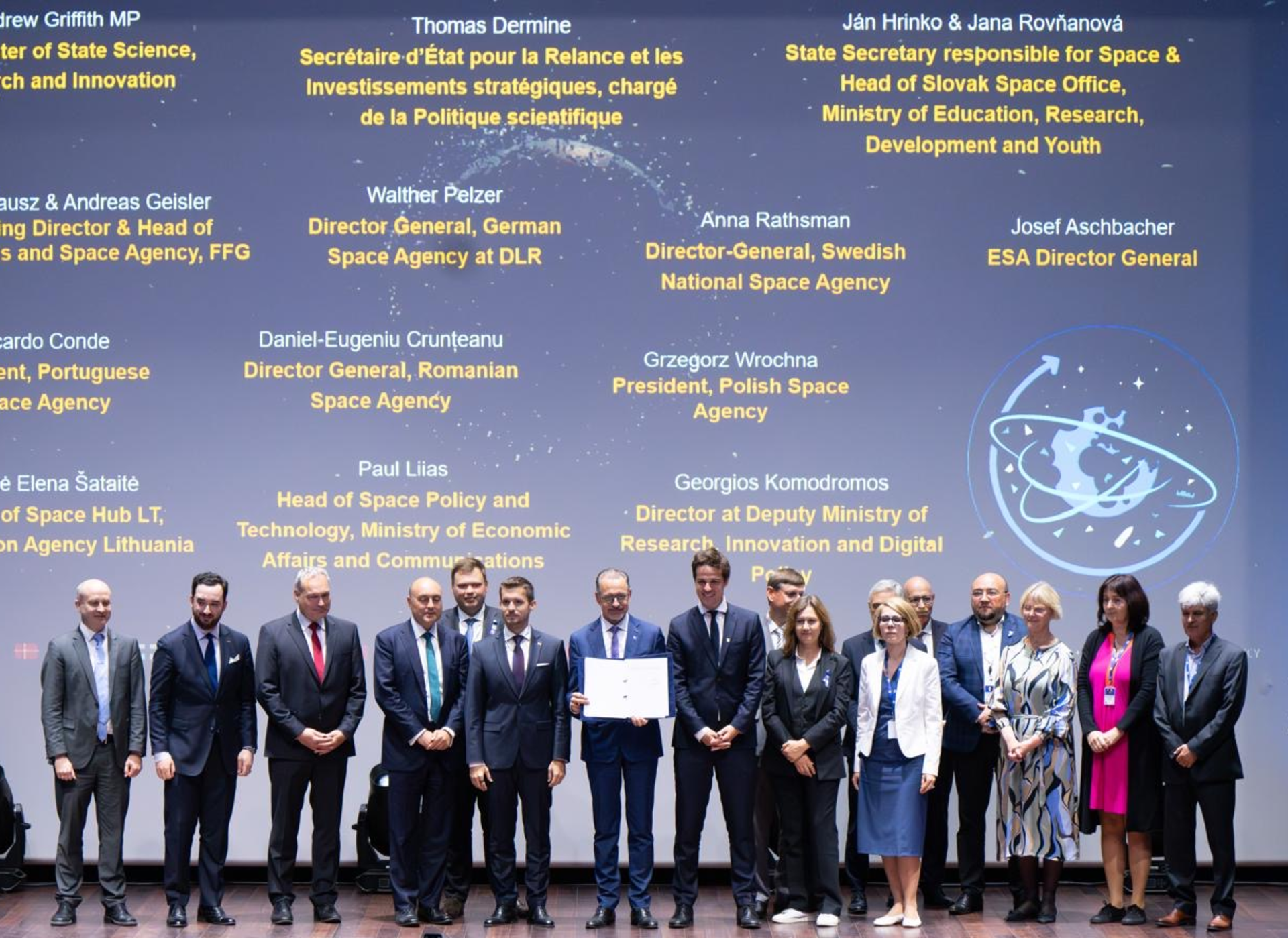European Space Agency Leads Efforts for Zero Space Debris by 2030
Twelve countries, including Austria, Belgium, Cyprus, Estonia, Germany, Lithuania, Poland, Portugal, Romania, Slovakia, Sweden, and the United Kingdom, have signed the Zero Debris Charter at the ESA/EU Space Council, showcasing their dedication to ensuring the sustainability of human activities in Earth orbit. The European Space Agency, as an International Organization, has also pledged its commitment to the Zero Debris Charter.
The Zero Debris Charter, introduced at the ESA Space Summit in Seville in November 2023, aims to achieve debris neutrality in space by 2030. This significant step highlights Europe’s leadership in promoting clean space practices and has garnered support from more than 100 organizations worldwide, with additional signatories expected in the near future.
ESA’s Zero Debris approach, aligned with the Charter’s objectives, involves implementing stringent debris mitigation measures and remediation technologies to address the growing threat posed by space debris. With over one million pieces of debris larger than one cm currently orbiting Earth, proactive measures are essential to safeguard satellites and astronauts from potential collisions and ensure the sustainability of space activities.
ESA’s Vision for a Debris-Free Space Environment
In response to the escalating risks associated with space debris, ESA has prioritized the adoption of a Zero Debris approach across its missions, emphasizing the importance of collective action in preserving Earth’s orbital environment. By encouraging partners and stakeholders to embrace sustainable practices, ESA aims to position Europe at the forefront of space sustainability while upholding the competitiveness of its aerospace industry.
Through the collaborative development of the Zero Debris Charter, involving key industry players, academic institutions, and governmental agencies, ESA is fostering a global movement towards achieving a debris-neutral space environment. The Charter’s comprehensive framework, encompassing guiding principles and ambitious targets, serves as a roadmap for the space community to work collectively towards the shared goal of Zero Debris by 2030.
At the upcoming ILA Berlin air show, the first industry partners, academic institutions, and non-governmental organizations are expected to join the growing coalition supporting the Zero Debris Charter. This momentum underscores the widespread recognition of the urgent need for sustainable space practices and highlights the critical role of international cooperation in addressing the challenges posed by space debris.
Global Collaboration for Space Sustainability
The signing of the Zero Debris Charter by twelve nations marks a significant milestone in advancing space sustainability efforts on a global scale. By committing to the Charter’s principles and targets, these countries are setting a precedent for responsible space stewardship and demonstrating their dedication to ensuring the long-term viability of space activities.
ESA’s role in driving the Zero Debris initiative reflects its commitment to fostering innovation, collaboration, and sustainable practices within the space sector. As more organizations and stakeholders pledge their support to the Charter, the momentum towards achieving a debris-free space environment continues to grow, underscoring the importance of collective action in safeguarding the future of space exploration and satellite operations.




